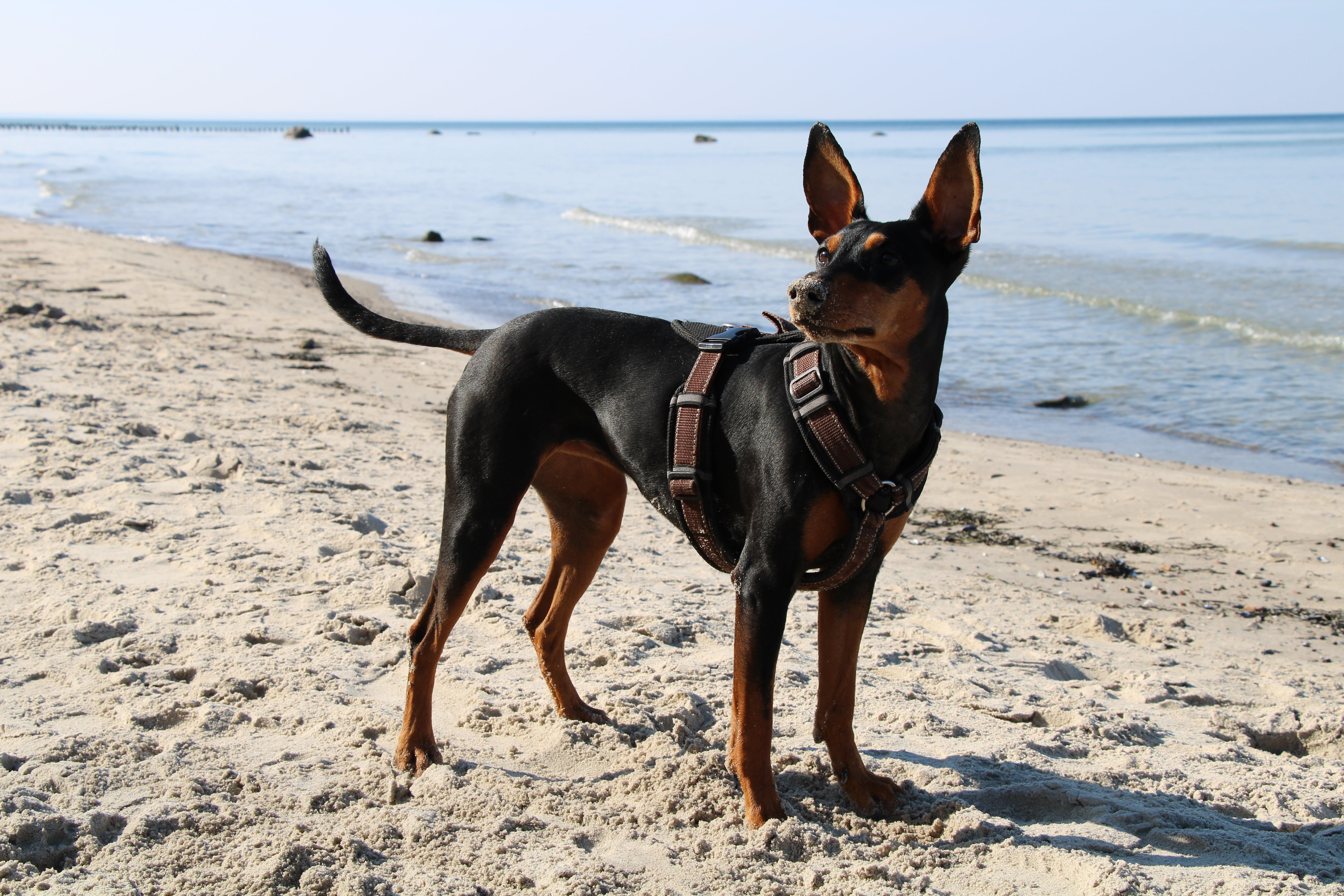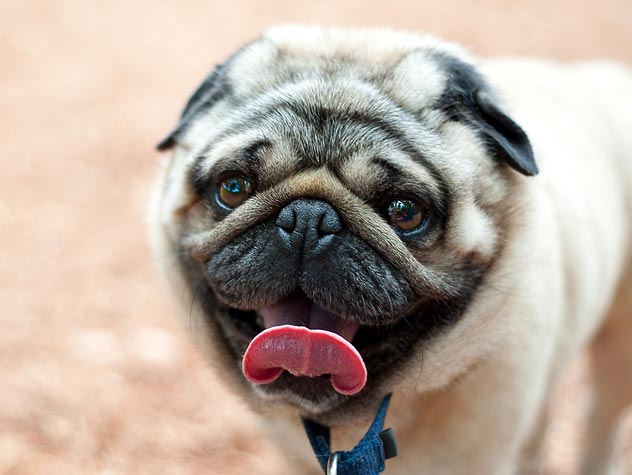German Pinscher
The German Pinscher dog has a carefree disposition, a can-do attitude, and an elegant look. Their rich coat has a hallmark wood-toned shine and luster in shades of mahogany, ebony, and cherry. They are intelligent and alert, acting as self-appointed property patrollers.
Breed characteristics carousel
Learn More
Need to Know
- Good for experienced owners
- Extra training required
- Generally healthy breed
- Enjoys active walks
- Medium dog
- Minimal drool
- Requires frequent grooming
- Chatty and vocal dog
- Barks and alerts to visitors and anything unusual
- Could have issues with unknown dogs but gets along with known dogs
- May need additional training to live with other pets
- May need additional supervision to live with children
- Needs a small yard or can happily live in the city
- Can be left alone occasionally with training
- AKC Registered Breed

Personality
German Pinschers are clever, alert, and independent. They especially thrive in a mentally stimulating environment. With a sharp nose and observant eyes, the German Pinscher dog breed possesses a primal urge to chase, even if it’s simply their favorite toy. Beneath their playful attitude lies a loyal protector. They're watchful guardians, ever vigilant against anything unfamiliar that might disrupt their domain. Trainable with the right motivation, German Pinscher dogs are eager to please and love learning alongside their owner.
The German Pinscher wasn't bred for lounging. Instead, this working dog originated in the 1800s on German farms and in stables, where their true grit was on display. Nimble and fearless, the German Pinscher dogs were ready to dive headfirst into muck heaps or weave between horses' hooves to take down pesky rats. They acted as vocal guardians as well, raising the alarm at the first sign of intruders.
German Pinschers originally came in two coat varieties: smooth and rough. The rough-coated type is believed to be the ancestor of the modern Standard Schnauzer. The dogs first came to America in the 1970s.
German Pinschers are happiest with an active lifestyle. Long walks, hikes, and tracking games can satisfy their high spirits. These smart dogs are easy to care for if you keep them busy. Exercise, mental stimulation, and companionship are a winning combination.
Hardworking German Pinscher dogs thrive on staying busy, so give them a chance to burn off that energy and keep their minds sharp. Keep things fresh by changing up your walking routes and locations and allowing them to chase off-leash in a secure area. A tired Pinscher is a happy Pinscher.
German Pinschers are adaptable dogs. Their compact size makes them suitable for apartments or houses so long as they get enough exercise. Beware of their bark! These natural watchdogs love to alert you to everything, so proper socialization and training are crucial to avoid disturbing neighbors.
The German Pinscher dog’s short and smooth coat is a breeze to maintain by brushing them down.
While German Pinschers are clever, their stubborn streak means training can take consistency and effort. They're motivated by food, toys, and activities that tap into their natural instincts for sniffing, running, and chasing.
German Pinscher dogs can be fantastic companions for families with older children. Once kids are old enough to participate in training and walks, these dogs can be a source of fun and engagement for everyone.
The cost of a German Pinscher from a breeder is significantly more than the cost of adopting one from a local shelter or rescue. The adoption fee usually covers additional items such as spaying or neutering, vaccines, and microchipping.

Learn more about feeding and caring for your German Pinscher on Purina.
Did You Know?
- While German Pinschers and Dobermanns look alike, they're not close relatives. The German Pinscher is much closer to the Schnauzer.

